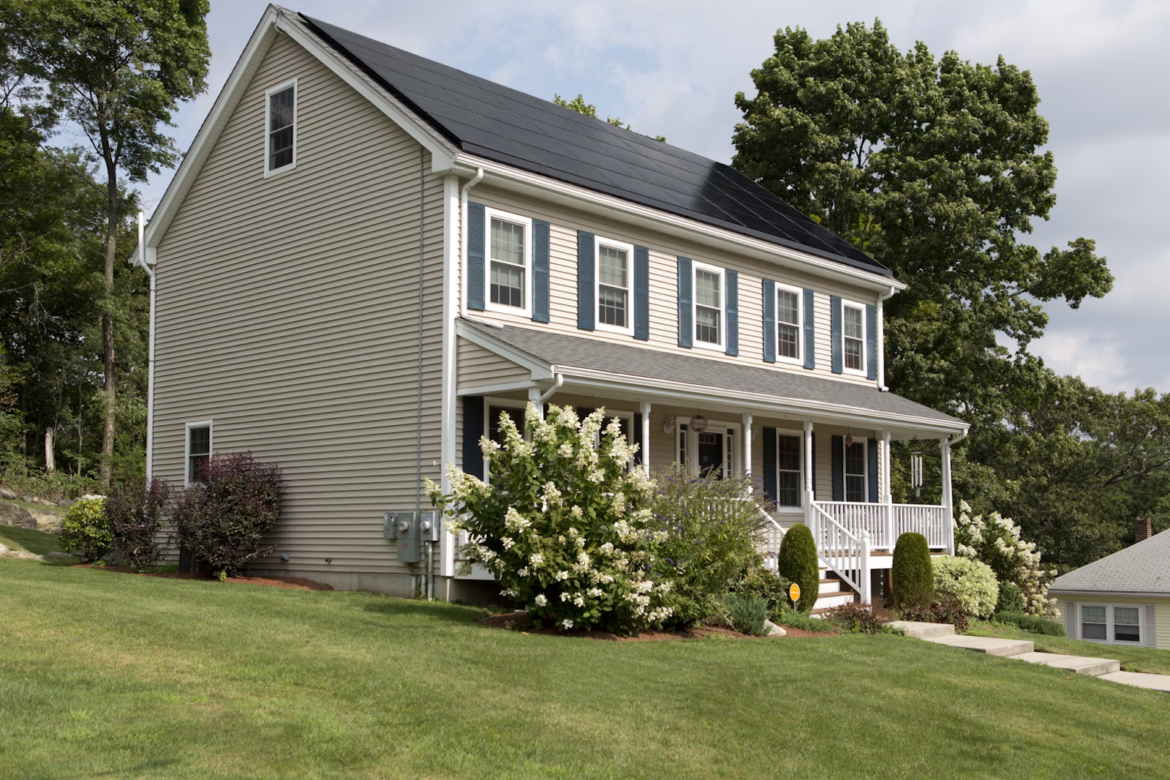
The UK is on the brink of a significant shift in how it produces and uses energy. With traditional sources like fossil fuels facing challenges, the nation is increasingly turning to renewable energy solutions. Solar panels are becoming a key player in this transition. By capturing sunlight and converting it into electricity, they offer a clean and sustainable way to power homes and businesses. Integrating these solar panels with smart grids can enhance energy efficiency and stability, making it easier for the UK to meet its net-zero carbon goals.
Understanding Solar Panels and Their Role in the UK’s Energy Mix
Solar panels work by using photovoltaic (PV) cells to convert sunlight into electricity. This process is efficient, cost-effective, and environmentally friendly. In the UK, the adoption of solar panels has grown steadily over the years. While the weather can be unpredictable, modern solar panels are designed to work even in less-than-ideal conditions. The growth of solar panels in the UK reflects a broader trend towards renewable energy, with households and businesses alike reaping the benefits of lower energy bills and reduced carbon footprints. Despite some challenges, solar panels are set to play a major role in the UK’s energy future.
The Concept of Smart Grids
Smart grids are the future of energy distribution. Unlike traditional grids, which simply deliver electricity from power plants to homes, smart grids use advanced technology to manage and distribute energy more efficiently. This includes integrating renewable sources like solar panels, which generate power locally. With smart grids, energy is monitored in real-time, allowing for better management of supply and demand. This means that during peak times, when energy use is high, the grid can adjust to ensure everyone gets the power they need. Smart grids also empower consumers, giving them more control over their energy use, especially if they have solar panels installed.
How Solar Panels Complement Smart Grids
Solar panels and smart grids work hand in hand. When homes and businesses generate their own electricity with solar panels, they reduce the demand on the main grid. This decentralization of energy production makes the entire system more resilient. In a smart grid, the energy generated by solar panels can be stored in batteries for later use, helping to balance supply and demand. This is especially useful during peak hours or when the sun isn’t shining. By integrating solar panels with smart grids, the UK can create a more stable and efficient energy system that benefits everyone, from individual households to the nation as a whole.
Enhanced Energy Storage and Distribution
One of the key benefits of combining solar panels with smart grids is improved energy storage and distribution. When solar panels produce more electricity than is needed, the excess energy can be stored in batteries. This stored energy can then be used when demand is high or when solar production is low, such as at night or during cloudy weather. Smart grids manage this process automatically, ensuring that energy is always available when needed. This not only maximizes the efficiency of solar panels but also reduces the need for backup power from traditional energy sources, making the entire energy system more sustainable and reliable.
The Role of Government Policies and Incentives
Government policies and incentives play a crucial role in the adoption of solar panels and smart grids in the UK. Current policies include grants and subsidies for installing solar panels, making it more affordable for households and businesses. The government is also investing in smart grid technology, recognizing its importance for the future of energy. These incentives have driven growth in the renewable energy sector, helping the UK move towards its net-zero targets. Looking ahead, future regulations may further support the integration of solar panels with smart grids, encouraging more people to embrace this sustainable energy solution. Continued government support is essential for the success of this transition.
Technological Innovations on the Horizon
Technological innovation is key to the future of solar panels and smart grids in the UK. Advances in solar panel technology are making them more efficient and affordable, allowing more people to harness the power of the sun. For example, new types of solar panels are being developed that can generate electricity even on cloudy days, which is particularly useful in the UK. In addition, next-generation smart grid technologies are emerging, which will improve the way solar energy is distributed and stored. These innovations will make it easier and more cost-effective to integrate solar panels with smart grids, paving the way for a more sustainable energy future.
The Impact on Consumers and Businesses
The integration of solar panels and smart grids will have a significant impact on consumers and businesses across the UK. For consumers, the most immediate benefit is lower energy bills. By generating their own electricity with solar panels, households can reduce their reliance on the grid and take advantage of lower energy costs. Businesses can also benefit by using solar panels to power their operations, which can lead to substantial cost savings over time. Additionally, both consumers and businesses will enjoy greater energy independence, as smart grids allow them to store and manage their energy more effectively. This increased control over energy use will be a major advantage as the UK moves towards a more sustainable energy future.
Environmental and Economic Impacts
The environmental and economic impacts of integrating solar panels with smart grids in the UK are profound. Environmentally, this combination will significantly reduce carbon emissions, helping the UK meet its climate goals. Solar panels generate clean energy, and when paired with smart grids, the overall efficiency of energy use increases, further reducing the need for fossil fuels. Economically, the growth of the solar panel and smart grid industries will create new jobs and stimulate investment in green technologies. This will not only boost the economy but also position the UK as a leader in the global renewable energy market, setting an example for other countries to follow.
Your Takeaway
In conclusion, solar panels and smart grids are set to transform the UK’s energy landscape. As the country moves towards a more sustainable future, the integration of these technologies will play a crucial role. Solar panels provide a renewable source of energy that reduces carbon emissions and lowers energy costs. When combined with smart grids, the benefits are even greater, creating a more efficient, reliable, and resilient energy system. Government support and technological innovations will drive this transition, making it easier for consumers and businesses to adopt solar panels and smart grid solutions. By embracing these technologies, the UK can lead the way in the global shift towards renewable energy, ensuring a cleaner, greener future for all.


